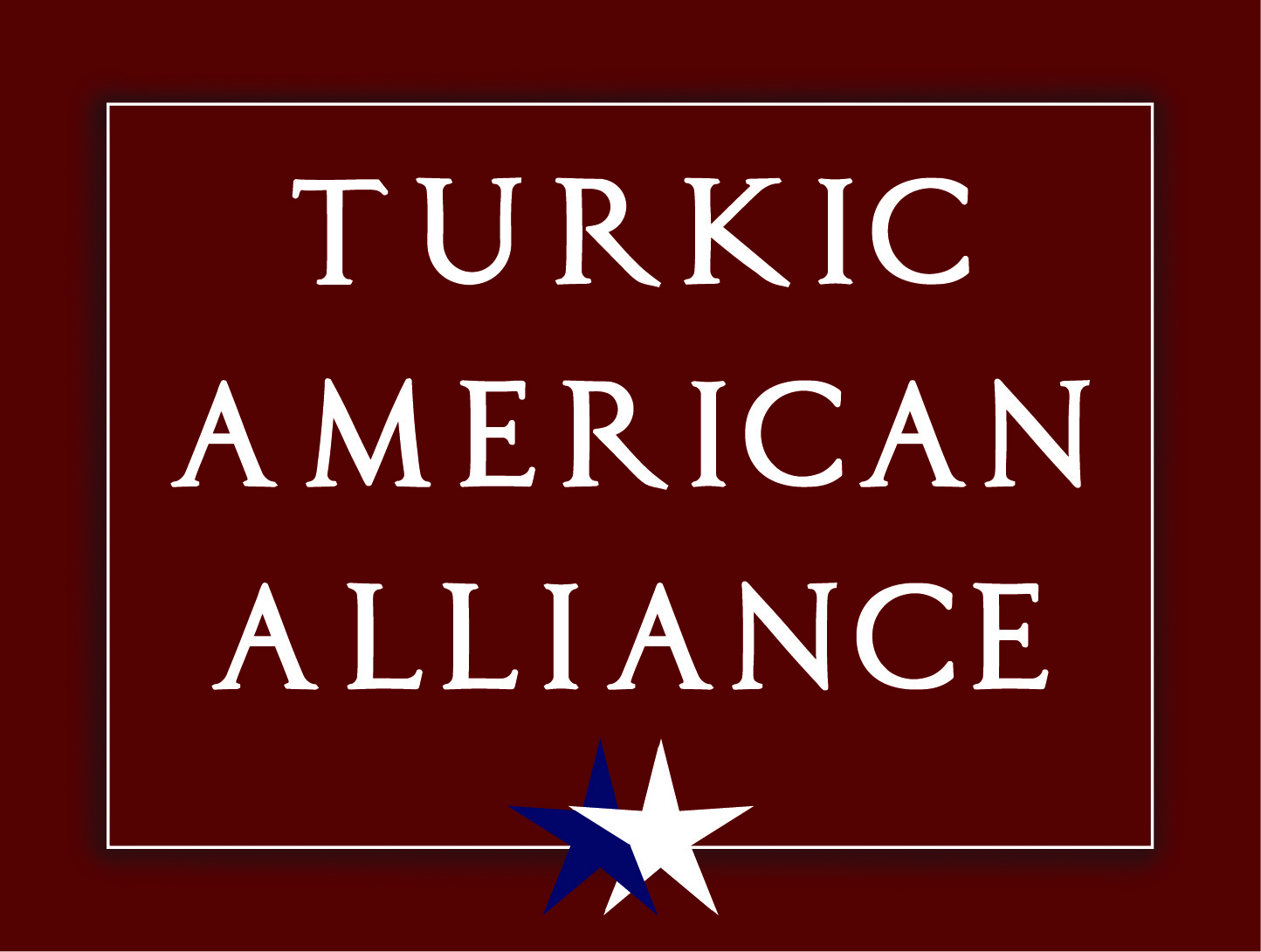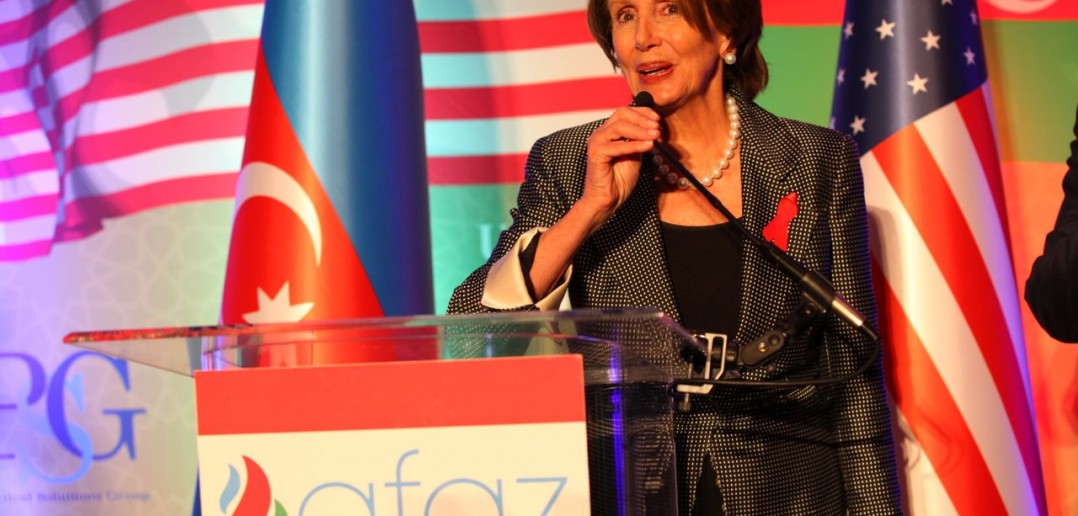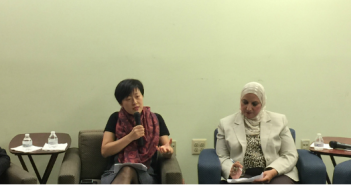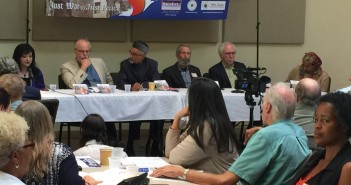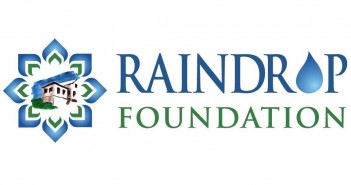Forum Session 3: Azerbaijan: Developing the Nation’s Human Capital
Dr. Michael Rubin, moderator and Resident Scholar at the American Enterprise Institute, opened the discussion by highlighting the importance of friendships, praising Azerbaijan as being a “good model of how things get done right.” In addition, Rubin noted that the middle class is crucial in establishing a strong foundation for the region.
Susan Sadigova, Executive Director at the U.S.-Azerbaijan Chamber of Commerce, shed light on the importance of human capital in Azerbaijan, emphasizing its value in meeting the country’s development concept. For instance, “Azerbaijan 2020” was initiated for the purpose of taking advantage of the country’s potential and aims to promote sustainable development of the country’s economy through the participation of skilled labor, government agencies, cooperation with the international community and research institutions. Through these means, the initiative seeks to improve Azerbaijan’s social well-being and accelerate the country’s progress. Education is Azerbaijan 2020’s core investment.
The Honorable Sevinj Fataliyeva, Deputy of the National Assembly of Azerbaijan, focused on the role of education and human policy, as well as the trends in the country’s social policy. Social policy in Azerbaijan, according to Deputy Fataliyeva, focuses on issues such as employment, temporary and permanent job creation and regional programs. In particular, the Deputy stressed the role of women in state building, as well as their voting rights. Additionally, Deputy Fataliyeva mentioned that Azerbaijan has seen an increase in youth-led organizations, which have spurred proposals for state programs and have served as the foundation for youth movements.
Dan Burton, former U.S. Congressman of Indiana, briefly discussed the leadership of Azerbaijan in the region, as well as the Azerbaijan Pipeline. Former Congressman Burton noted that, “The stability of the region depends on the investment of human capital and political leadership. Also, the pipeline is important to the region of Western Europe in order to avoid over-dependence on Russia.” Burton went on to encourage support from the U.S. government to support the Azerbaijan Pipeline project.
Dr. Andrew C. Hess, Professor of Diplomacy at the Fletcher School at Tufts University, recommended that Azerbaijan should continue to place more emphasis on higher education and human development. This could be done, he suggested, by increasing information exchange between the United States and Azerbaijan through training programs, recruitment and establishing centers that promote multicultural education and diplomacy.
Dr. Brenda Shaffer, a Professor at the Center for Eurasian, Russian and East European Studies (CERES) at Georgetown University, spoke briefly on the freedoms, culture and multicultural identity in Azerbaijan. She underlined the need to maintain a “proper balance between religion and state” in its education system and in its society as a whole.
Mukhtar Babayev, Vice President of SOCAR (State Oil Company of Azerbaijan Republic), conveyed and commended Azerbaijan’s global position in establishing a strong education system, which aims to improve the outlook of Azerbaijani citizens through social, political and economic progress. Babayev also addressed the need for the country to invest in its intellectual capital by “converting oil capital to human capital.” Additionally, according to Babayev, the country is planning to create programs that promote science, leadership and management. He emphasized SOCAR’s commitment to investing in human capital through partnerships and creating opportunities for citizens to acquire practical experience. Based on the Human Develop index, which is used to determine a country’s level of innovation, Azerbaijan is ranked 46th globally.
Forum Session 4: Strengthening Dialogue, Promoting Tolerance
The moderator for Forum Session 4 was Alex Vatanka, Senior Analyst at the Middle East Institute. Panelists included Allahshükür Pashazade, Sheikh ul-Islam and Grand Mufti of the Caucasus; Mark Levin, Executive Director of the National Conference Supporting Jews in Russia, Ukraine, the Baltic States & Eurasia (NCSJ); Jason Katz, Director of Tool Shed Group, LLC; Dr. Svante Cornell, Research Director at the Central Asia-Caucasus Institute & Silk Road Studies Program; and the Honorable Asim Mollazada, Deputy of the National Assembly of Azerbaijan and Chairman of the Democratic Reforms Party.
Additional remarks were delivered by His Eminence Alexander Isheyin, Archbishop of the Baku-Azerbaijani Diocese of the Russian Orthodox Church; Father Vladimir Fekete, S.D.B., Prefect Apostolic of Baku, Azerbaijan; and Milikh Yevdayev, Chairman of the Mountain Jews Religious Community.
Discussions included creating an environment of tolerance, and peaceful coexistence of different religions and ethnic groups in Azerbaijan.
Gala and Dinner
The 3rd Annual U.S-Azerbaijan Convention, under the theme “Vision for Future,” came to a close on April 30th with a gala and dinner at the Willard InterContinental Hotel in Washington, D.C. The event was moderated by Mistress of Ceremony, Lamija Silajdzic, who was happy to see the room filled to capacity. Silajdzic thanked the Assembly of the Friends of Azerbaijan (AFAZ) for putting together such a timely and significant convention in the nation’s capital.
The U.S.-Azerbaijan Convention was initiated just two years ago in 2012 to celebrate 20 years of relations between the United States and Azerbaijan since Azerbaijan achieved its independence from the former Soviet Union. Now in its third year, the convention had the distinct opportunity to position itself in Washington, D.C., with an audience highly focused on current events in the region and their geopolitical implications.
AFAZ was founded in 2012 to build bridges between the United States and Azerbaijan while educating the American public about issues related to U.S.-Azeri relations and to Azeri-Americans. Despite its short history, AFAZ has managed to launch various projects to fulfill its mission to foster friendship, cooperation and understanding between the United States and Azerbaijan.
Distinguished guests in attendance included Minority Leader Nancy Pelosi (CA), Congressman Filemon Vela (TX), Congressman André Carson (IN), Congresswoman Yvette Clarke (NY), Congressman Xavier Becerra (CA), Congressman Al Green (TX) and Major General Myles Deering of the Oklahoma National Guard.
For more information, pictures and videos about the 3rd Annual U.S.-Azerbaijan Convention, please visit the convention website at http://www.usazconvention.org/.
